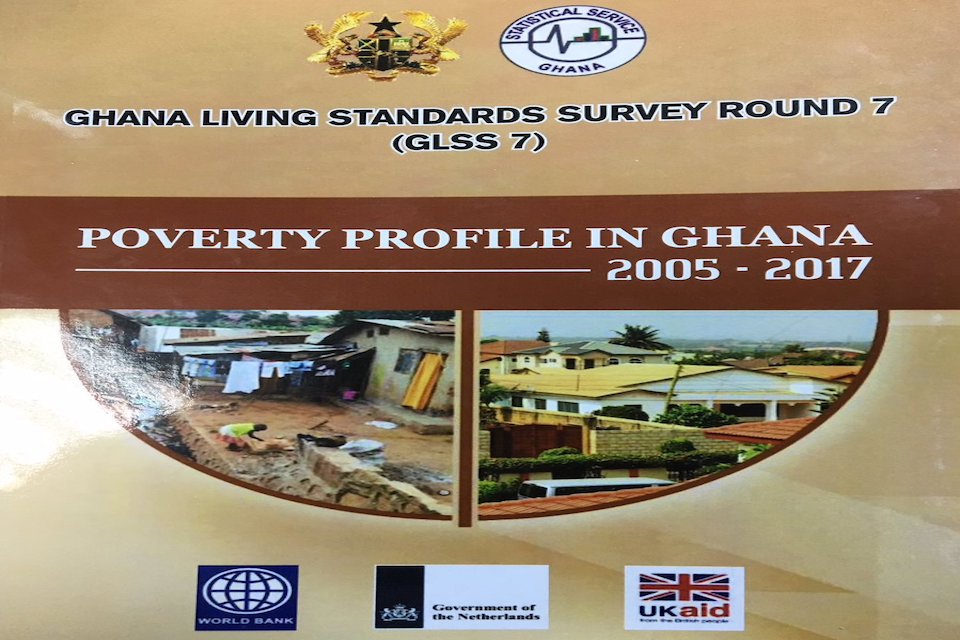DFID Ghana Country Director's speech at the launch of report on poverty profile in Ghana
Department for International Development Ghana Country Director, Philip Smith delivered a speech at the launch of report on poverty profile in Ghana.

I am very pleased to be here today to participate in the launch of this poverty profile report, and the release of new poverty data for Ghana.
This report is particularly timely coming in the wake of yesterday’s launch of Ghana’s Baseline Report on the Sustainable Development Goals, and as the government drafts a Charter setting out the plan for Ghana Beyond Aid.
The UK has had a long-standing collaboration with the Ghana Statistical Service. In partnership with the World Bank we have supported the GSS to build its capability and produce and deliver the data needed to inform policy and development in Ghana.
We are also pleased to be supporting a new partnership between the GSS and the UK’s equivalent, the UK Office of National Statistics.
Data plays a critical role in informing policy-making. Good data allows effective decisions to be made about where to target resources and to understand which policies are most effective.
Disaggregated data – data that shows location, gender, disability, age or other characteristics – also shows us where the needs are greatest and can help ensure that no one is left behind (the overarching theme of the Sustainable Development Goals).
Ghana is one of the few sub-Saharan African countries to achieve the MDG1 target of halving extreme poverty between 1991 and 2015. However, even as economic growth in Ghana has accelerated, inequalities persist.
Yesterday, at the event launching the baseline data for the SDGs, the data from 2013 showed that the percentage of the population living below the poverty line in rural areas was six times higher than in urban areas. Today – from a quick skim of this report – it appears that the gap between regions and between rural and urban areas remains wide, and in some cases is worsening.
Over the last two decades, the UK has invested over 2 billion pounds of development aid in Ghana, working hand in hand with the government and other development partners, and contributing to Ghana’s impressive development gains …..
… but we haven’t made a dent in the high poverty rates in the North.
Poverty in rural northern Ghana remains stubbornly high. And decades of investment by development partners in the North has been less than transformational. Historically, Ghana’s success in reducing poverty has largely been the story of the South.
Rising inequality presents a huge challenge for the government and development partners. We must maintain concerted efforts to address these inequalities in order for Ghana to leave no-one behind and achieve the Sustainable Development Goals.
Ladies and Gentlemen, this new poverty data comes at a critical time, not just in establishing progress towards the SDG’s but also to help inform the focus of the “Ghana Beyond Aid” agenda.
Let me be clear - the President’s vision for a self-reliant Ghana is inspiring and is applauded by the UK and all development partners. In the long term, economic development with investment and, critically, jobs is the sustainable pathway to self-reliance.
But “Ghana Beyond Aid” must address the issue of why, despite record economic growth, inequality in Ghana is rising. The “Beyond Aid” agenda has so far focused only on investment, infrastructure and trade and there is a risk that government, and development partners, shift their gaze from the immediate task of improving the lives of the poorest and most vulnerable in Ghana.
Ghana Beyond Aid can’t just be about Ghana’s “self-reliance” through industrialization. It has to be address the “self-reliance” of the poorest and most marginalized Ghanaians – including out-of-schoolchildren, vulnerable women and people with disabilities.
So the data and findings to be discussed today should contribute to a national debate, not just about how Ghana moves “beyond aid”, but also about how Ghana can step up efforts to address inequalities and eliminate poverty at the same time.
The UK, as a friend and partner, stands ready to support Ghana to do this.
I am delighted to be part of this launch and I look forward to digesting the report.